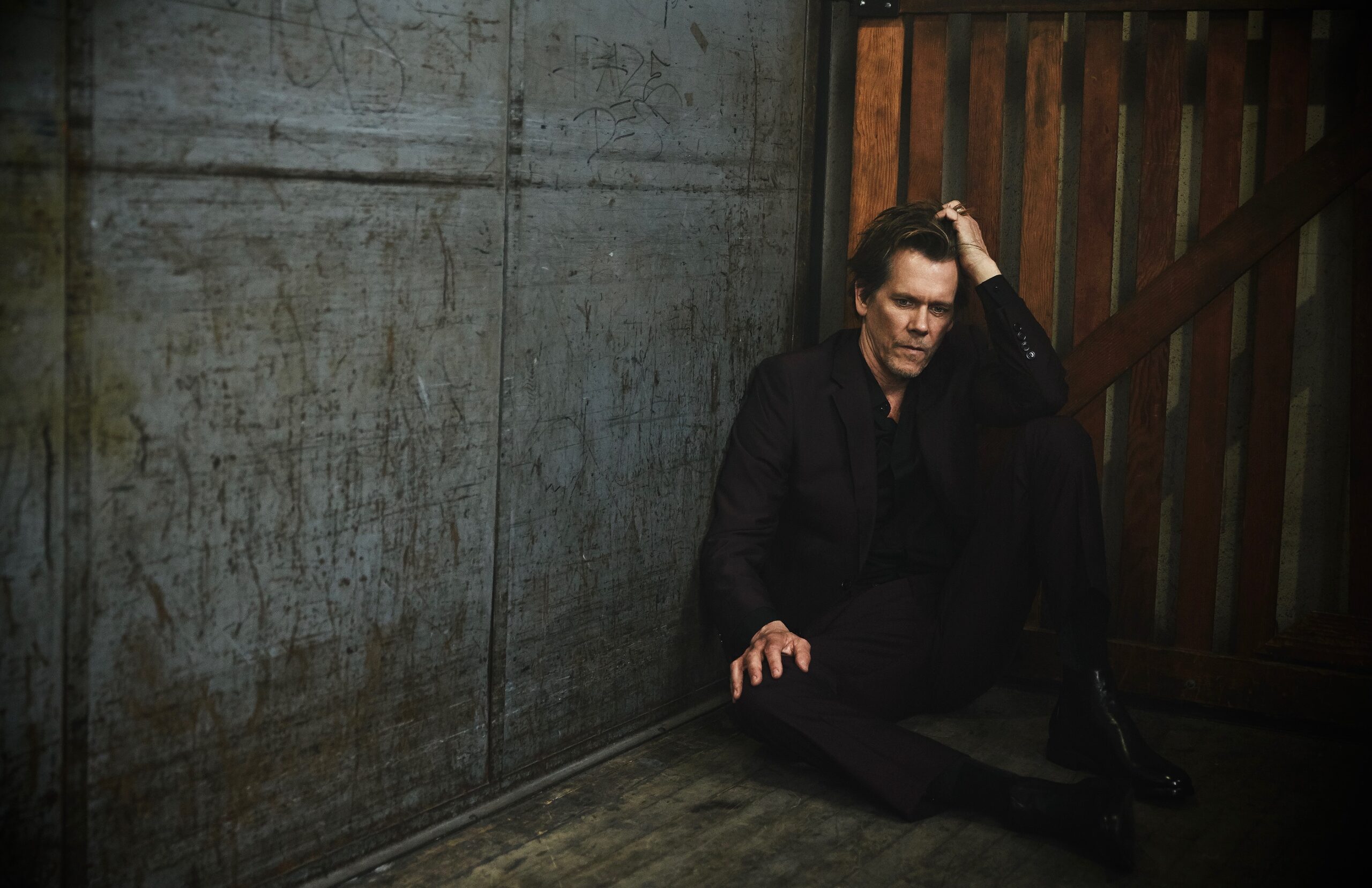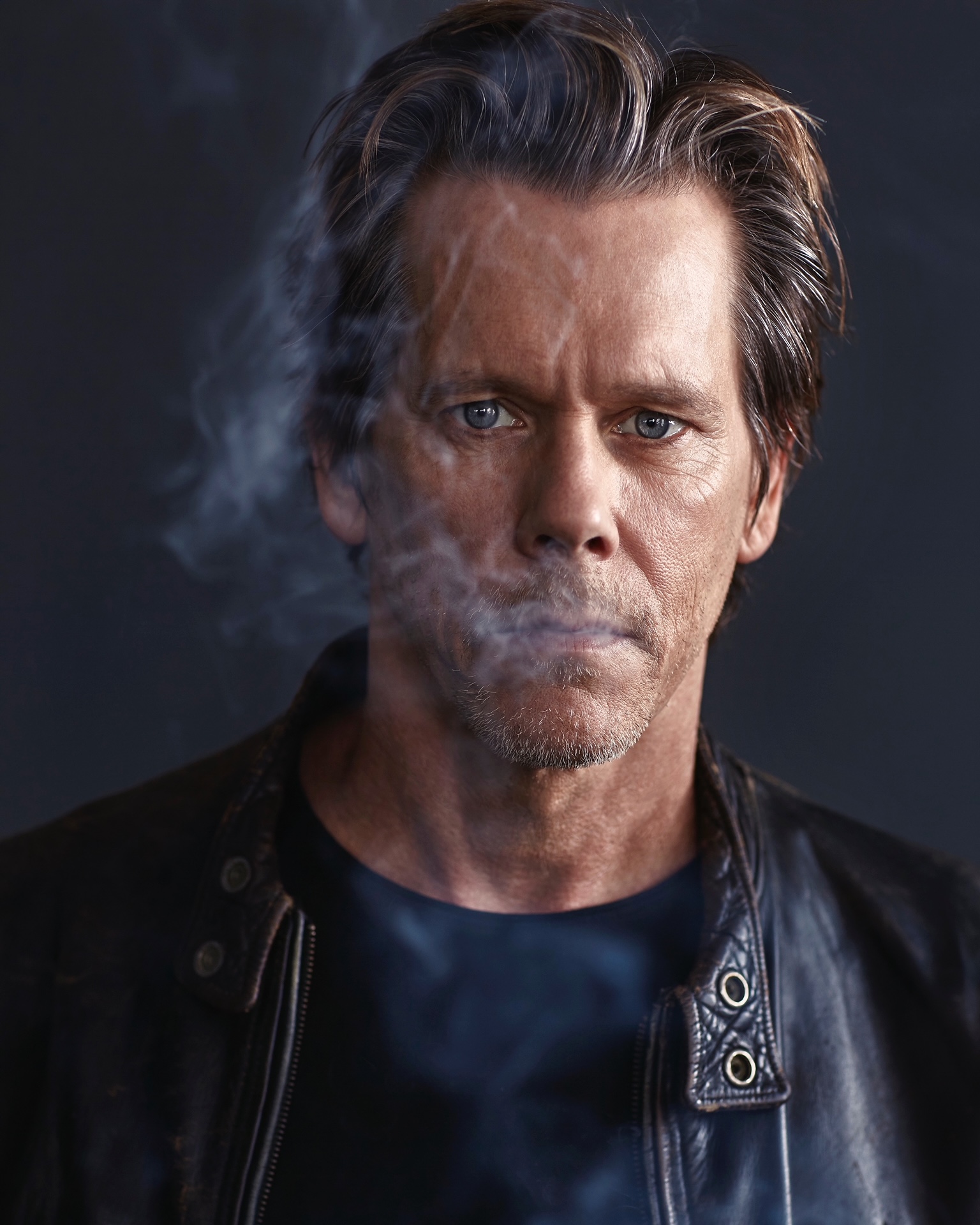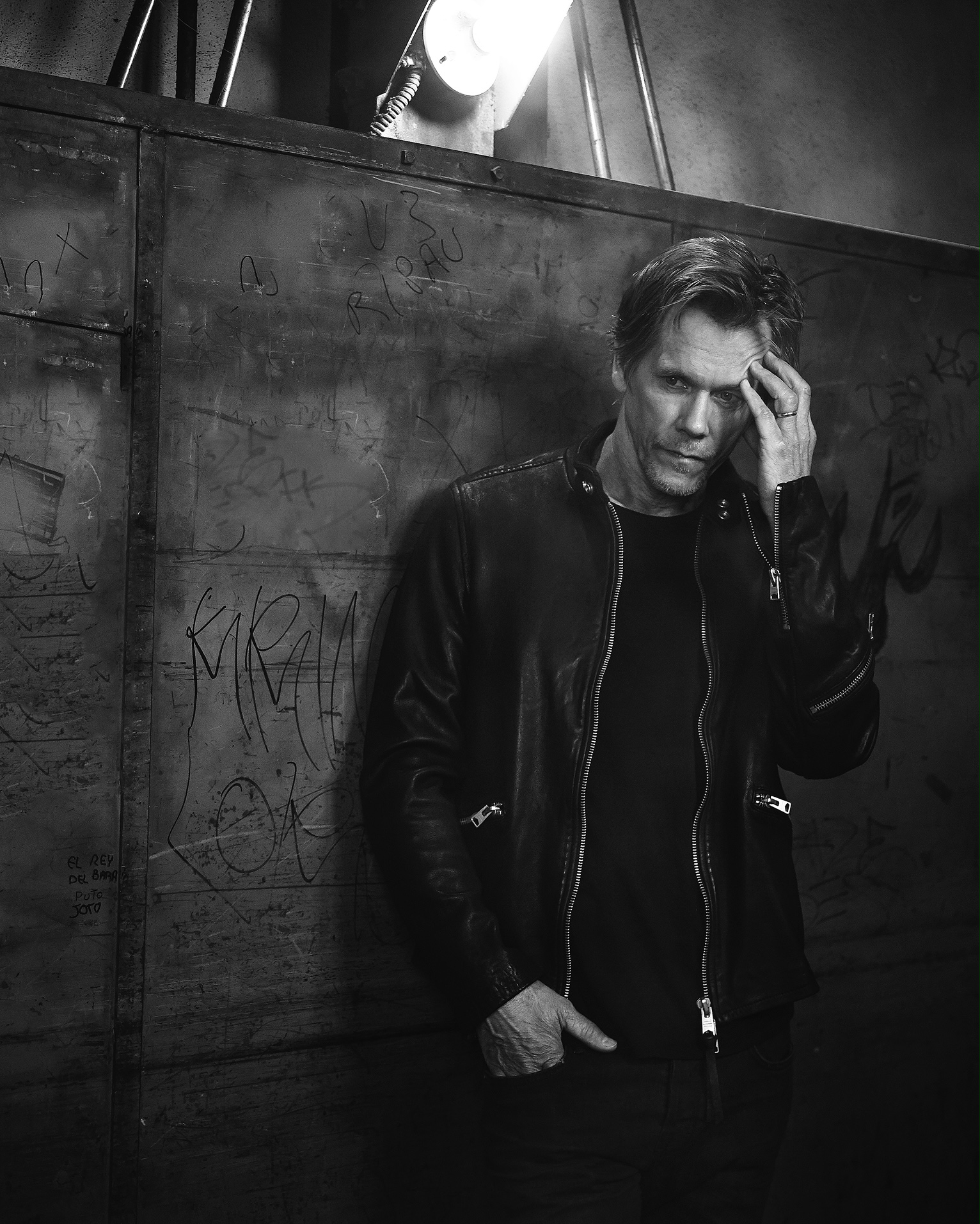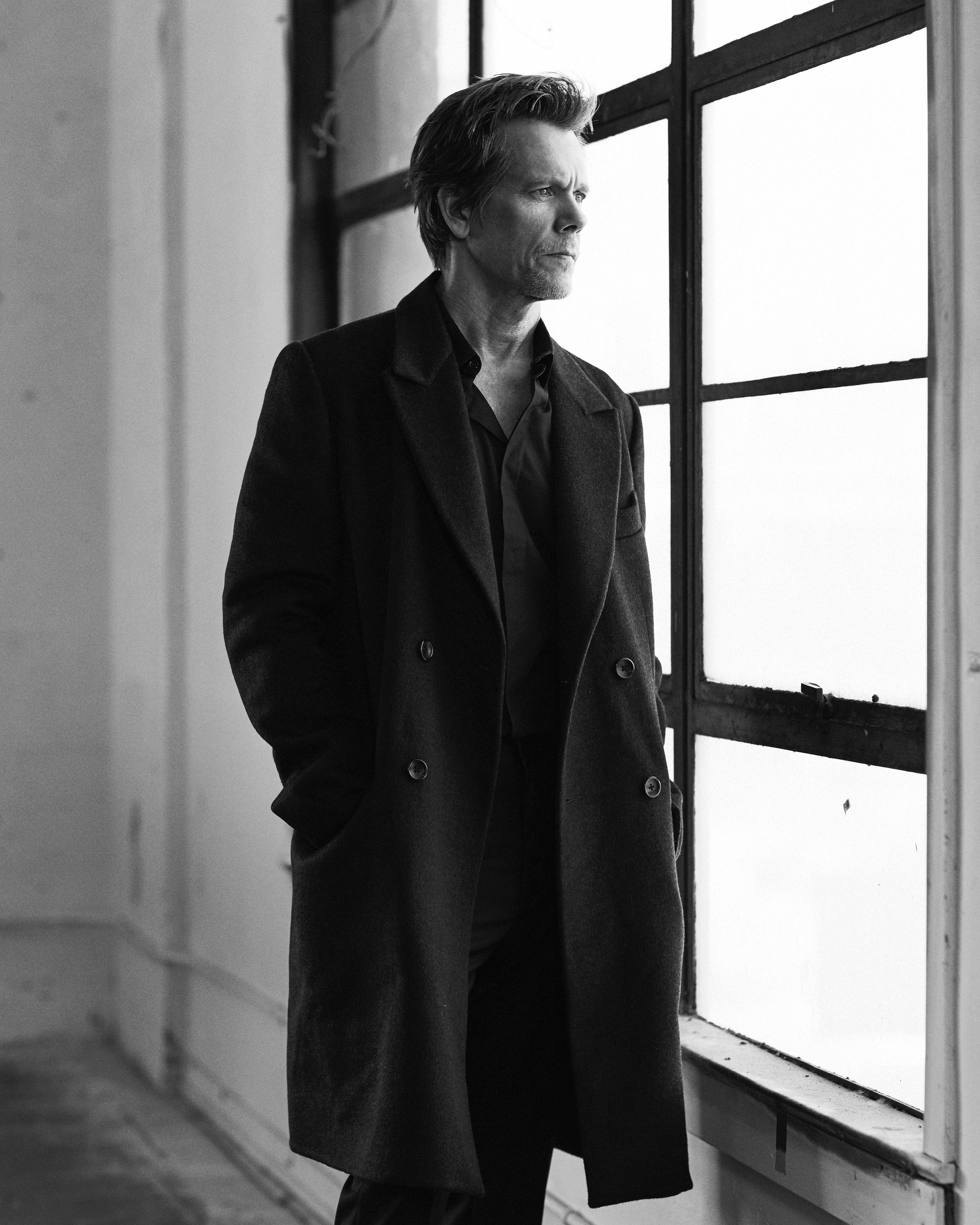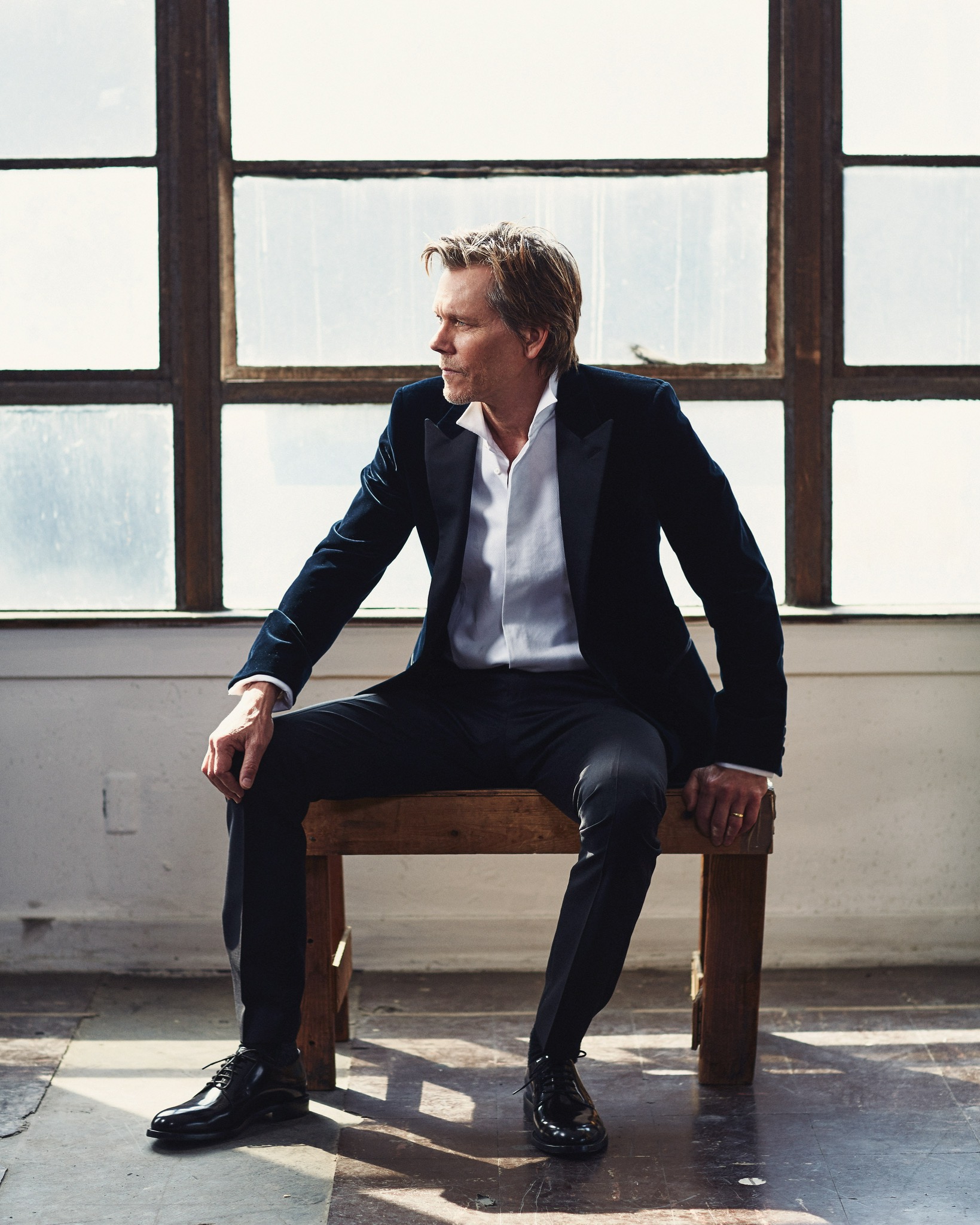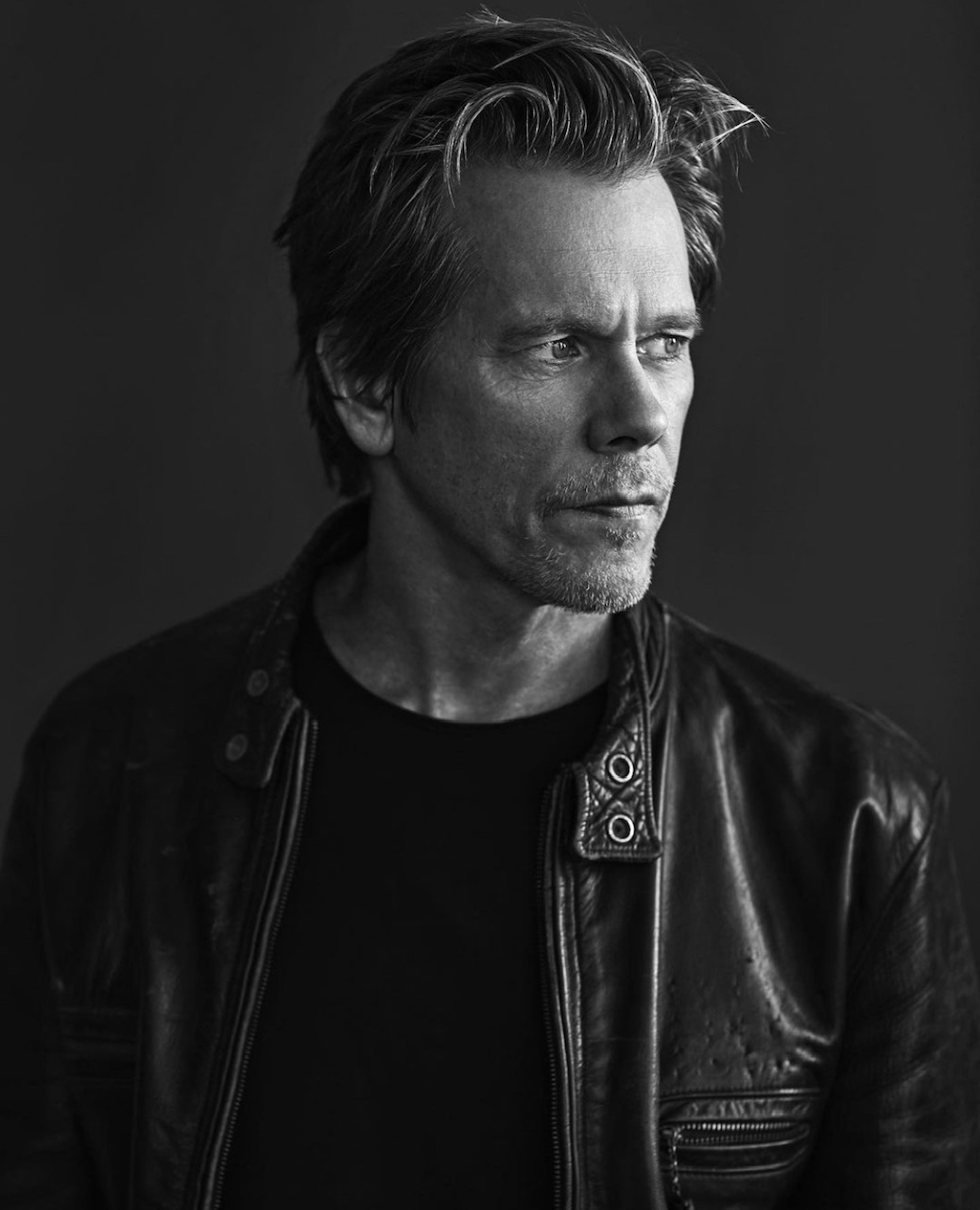Interview & Photographs by} John Russo
Grooming by} Beate Petrucelli
Styling by} Jenny Ricker for Starworks Artists
Location} Downtown Los Angeles
Q: So take me back to playing, Chip Diller, in Animal House. Could you have ever imagined such an incredible career at that point?
A: Well I mean I couldn’t have imagined what the career would have been, but I certainly had dreams. I had dreams and delusions of grandeur for sure. I mean, I think I’ve always had this kind of dual approach to acting and career, one is that I had these big, big sort of fantasy dreams that exist, that I don’t really share with anybody too much, because they are all sort of embarrassing, ever since I was a kid. They were things like seeing my name in lights or having beautiful women and being on the Tonight Show and all these kinds of things. And then on a daily basis, on a more practical basis, I would work towards whatever it was that I needed to attain those kinds of fantasies, such as trying to become a good actor first and foremost, getting better, because you don’t really start out good, I don’t think. Trying to make a living, become an extra, get an agent, all those little things. So I was in that kind of baby steps situation and I had left Philly when I was 17. I had gone to Circle in the Square Theater School and I was in the middle of my, I believe it was my second year, I think it was my second year and there was a casting director who came to New York. He was casting this movie that John Landis was doing and he came by Circle in the Square and he spoke to the head of the school. He said we are casting this movie that has a bunch of College kids in it, so do you have any kids that sort of look like they could be College age? I was really the only one that the school sent over, only because I think most of the kids at Circle were kind of older and I was a baby really. I was the youngest kid that they’d ever had there. So I was probably about eighteen or nineteen when I met John Landis. I had so few lines that I wouldn’t even call it an audition cause there really wasn’t anything for me to say so much, but he just kind of had me make faces. Honestly he said, show me, make a smarmy face. I honestly really didn’t know what the word “smarmy” meant, but I kind of looked at it as an onomatopoeia and I just kind of went. I just made a face that I thought maybe would look like smarmy might sound. And he’s like I love it, I love it, I love it! I had no agent, I was living in a really crappy apartment on the Upper West Side with a roommate, paying $150 dollars a month. I got a call on that phone saying you got this part in this movie. And that… was a pretty big deal for me.
Q: That’s awesome! Animal House is a piece of history, it’s the coming of age movie for people who are hitting 50. Do you think it was ahead of its time?
A: Sure, yeah, it was a real kind of groundbreaking movie in a lot of ways, because it was a fantastic, hilarious film. It also spawned a whole bunch of really shitty kind of copycats, (laughter) where basically they started a level of gross out humor or T-n-A humor that really didn’t have the same kind of, I don’t know, the same kind of heart that Animal House did. But for someone who had never been on a movie set to fly out to Oregon, where we shot it, they couldn’t get any kind of East Coast Schools to agree once they had seen this, (laughter) but I think they had to give the University of Oregon a doctored script in order for them to agree to shoot it there (laughter) But it was probably an underfunded school at the time and they were willing to have us there. To arrive at a hotel and come onto a set and see all these people, cameras and lights and this insane carnival of filmmaking, I was completely overwhelmed but I also felt like okay, this is where I’m going to be for the rest of my life.
Q: I have to talk about The River Wild, because it’s literally one of my favorite movies. It is one of those movies that you can watch over and over again, it’s a classic. Where does that rank on your favorite projects?
A: Loved it. Well I loved it for a number of reasons, people are sometimes surprised to say, but if I was to pick an actor that I most wanted to model myself and my career after, it would be Meryl. Because to me, she inhabits roles in a way that is completely surprising and transcendent and such a variety of different women that she’s played and played with such reality and honesty. I mean there’s a lot of people that we sometimes ascribe versatility to in our acting business, but if you really break it down, sometimes they’re doing different versions of the one or two characters that they have in their arsenal, really well I might add. But she’s someone who just has surprised me again and again and again. So when there was this opportunity and this role, of course I was just thrilled about it and I loved the screenplay and I loved Curtis Hanson, who had done some fantastic work, who sadly was taken from us way too soon. I remember that it took a long time to convince Curtis that I was the right guy, I think it was one of those gigs that I was kind of up for and he just was not pulling the trigger on it. So when he finally did I was absolutely thrilled. And I believe that we started out in Montana and went out there and walked into a room and it was myself and John C. Reilly and David Strathairn and Meryl. I am not usually intimidated by other actors, I get a little bit nervous around rock stars, if I meet a Beatle or something, (laughs) but actors, I don’t know, they don’t really intimidate me. But in this case, she was such a hero of mine. And what’s so great about her is that she knows that and immediately disarms everybody and you immediately get the impression that we are just going to roll up our sleeves and become an ensemble. We will play this scene and we will play the play and we will deliver the movie in a way that will give Curtis an opportunity to have his vision presented. And so that was very disarming. And on top of that, we had this incredible experience of going up and down these waterfalls, flying in helicopters, being rescued countless times and being thrown out of the boat. It was fantastic, I mean I loved it, I love the outdoors.
Q: So you have consistently worked in an industry that’s constantly changing, yet you remained extremely relevant and in demand and that’s like a testament to your talent, you simply always deliver. Like what is it about your work that keeps you in the game?
A: Well I love to work, I really do, even at this ripe old age. I just still absolutely love the time between action and cut. I love preparing and thinking about parts and trying to figure out a new way to walk in another man’s shoes. It’s very life affirming, it’s therapeutic, I just love it. I feel a tremendous amount of gratitude that I am able to continue to work and that I have been able to hang in there for all this time. As I like to say, I’ve seen a lot of roadkill down this long road. When I think back on the people that I have seen come and go and sometimes be lost to drugs or alcohol or scandal or whatever it happens to be, it’s hard to stick around as long as I have. I have nothing but gratitude for the fact that I’ve been able to do it. And also for the fact that when I do get offered things, they are varied. I don’t just have one kind of guy that I play, and that’s something that when I first started out, looking at Meryl and looking at Nicholson, Dustin and De Niro, I mean, that’s what I wanted. I didn’t want to just be someone to do the same thing over and over again. You kind of have to sort of fight for that to a certain extent, because Hollywood sometimes has a narrow imagination when it comes to casting. So I feel a lot of gratitude for the fact that things will come to me and they are just out of left field and that’s great.
Q: So is there one defining film in your career that you think changed the perception of what you can bring to the table?
A: Yeah hands down it was JFK. (laughs) I was a character actor when I started out, I felt like whether I called it that or not, I wanted to play characters. And that’s what I did off-Broadway, on Broadway and in films like Diner, before Footloose. Footloose came out and I was a leading man, I use the term “man” loosely. (laughs) But I was the guy. The films after that were my, I mean, they were either self-sabotaging to a certain extent or that wasn’t really where I was meant to be, it wasn’t really my sweet spot. I saw my career kind of starting to slip away, in a way, I mean I was in enough unsuccessful films. The sort of perception in the business was that I was starting to dwindle. So when an agent of mine decided that I needed to switch things up, she sent me to Oliver Stone. I sat down with Oliver and he said I’ve got this part and it’s not a big part, but will you be transformational? He basically said, will you try to surprise us and try to transform yourself? I’m like yeah I’m in, definitely. A prison, an inmate, gay, fascist, very just kind of a little bit of a lunatic. I did maybe four days on JFK. When the movie came out, I definitely saw a turn in my career and a turn in the way that people perceived me. It led directly to things like, The River Wild, things like Murder in the First and A Few Good Men and all of those things. All of a sudden now I found what my true calling was, which was as a character actor.
Q: Your performance in Mystic River, in my opinion, was the highest level. It’s one of those films where everyone was cast brilliantly. Have you ever been on a film where the casting, how could I say this, where the casting director maybe just didn’t get it, or without kind of dogging anybody of course, where the casting wasn’t where it should have been? And how does that affect you when you are trying to play your part.
A: Yeah that is a good question. Sometimes something is just so well cast like Mystic River. I look at Mystic River and I look at Diner and I guess I look at them both because they were a bunch of guys, and there are great female parts in Mystic River as well, but in terms of the core group that I was working with. And yeah, sometimes, there’s so much that goes into casting, between the casting director, the director and then the studio sometimes pushing somebody because either they feel like they are about to be hot or they’ve just been in something or they are sleeping with the producer, whatever it happens to be. (laughter) You just go, wow, this is just not happening. I mean you know, people talk a lot about this idea of chemistry right, do these people have chemistry? A lot of times it’s traditionally been couples, straight couples, do they have chemistry, it’s really to me that it implies well, do they actually want to sleep together? But then there’s also chemistry of fathers to sons or best friends, whatever. I don’t know, for me, I feel like chemistry is really a result of two really good actors in the right parts actually doing a good job together. To call it chemistry almost implies, it almost takes away from the actor’s job to me, or it almost makes it say well of course they have chemistry because they wanted to sleep together, as opposed to they are actually in a scene and listening and hearing. There’s been plenty of people that I’ve had chemistry with and I’ve been in scenes with and felt it and I’ve never seen them again or since and we’ve never even hung out, we never even got a beer. So yes, to answer your question, there are times where you turn around and go what were they thinking about this casting choice? Listen, I think it’s my job and my responsibility to still try to, as opposed to try to pull away and say well then I’m just going to worry about my shit, I think it’s important to keep trying to play the scene or play the play and I feel like any performance that I’ve ever given is really only been as good as the people that I’ve been with. That’s what enables you to step up and do good work, the people around you.
Q: So we are now living in a world where we cannot have an opinion publicly and if we do and it’s not one hundred percent in alignment with the current Hollywood political correctness, we are cancelled or we are attacked. Do you think it’s getting a bit out of control?
A: Well I mean I think that for many, many years people have acted with impunity. They have done and said hurtful things and have been abusive or whatever. Things have turned pretty sharply and pretty quickly in Hollywood in terms of that. Did the pendulum swing too far to one side, maybe. I think it will swing back, things will even itself out. So I’m not one of those people that looks at the world and says hey wait a second, I can say that, I’m allowed to say that, oh God, I can’t say anything, that’s just not the way I approach it. I literally feel like if there’s something that I am doing that is truly making someone uncomfortable or unsafe or hurting someone, I have to think to myself, what am I getting out of saying that. I think, do I really, really need to say that? Look I love America and I’ll never live anywhere else and we have this point of view which is sometimes kind of just overblown. I think about how, it’s my right, it’s my right, it’s my right, you know what I mean? I get it and we don’t want to turn into a complete cancel culture. On the other hand, you have to take a beat and look at each kind of instance as a separate instance as opposed to, oh this is just what we’re doing now.
Q: With the unbelievable success of shows like, Law and Order, TV crime dramas have proven to have such an incredible loyal fanbase. What is it about City on a Hill that you think has viewers so intrigued or what you find so intriguing about this particular drama?
A: Well this is what I like, this is why crime and hospital type things are so popular. I think because they are in life or death situations. Life and death situations are inherently dramatic. The thing that I like about City on a Hill and what I look for in any kind of crime or legal or military based show or movie, I want to see these people go home, I want to see them without the uniforms on. I want to see them when their badges are off and their guns are off or their hospital gown is off ,because to me, that’s how you learn about characters and their relationships outside of the job. It also informs the way that they exist in the job based on the actual personal experiences that they’ve had. So City on a Hill, we have been very careful and diligent about going home with these characters. My guy is a corrupt FBI agent, but you also see his relationship with his wife and daughter. You see their relationship to each other outside of his own life, my relationship to my mother-in-law for instance in the first season was kind of fascinating. That makes for complex and interesting characters as far as I’m concerned.
Q: I am actually from Philly as well. How do you go from the Philly accent to the California accent, to the Boston accent in City on a Hill? Do you ever wake up and think where the hell do I live, (laughter) like how am I going to talk today? Do you ever slip from accent to accent?
A: Yeah, what I do find is that in my life my Philly slips out every once in a while, even after living in New York since I was 17 years old. Every once in a while my Philly comes out. When it comes to Boston, I have done so many movies up there now, I did Mystic, RIPD, Patriots Day, Black Mass and I met Kyra up there with a PBS film. I ended up spending a lot of time in Boston. It’s not an easy one, I think I’ve gotten better over the years, but I tend to try not to think about accents as accents. I try to think of them more as the voice of that particular character so that it’s all inclusive in a way that says the music of it, the movement, the way the body, the placement and the head where that voice is coming from. As opposed to in Philly every time I say “Coke,” I’ve got to say (says with Philly accent) “Coke.” (laughter) I mean the A’s in Boston, that “Caaar” “Paaark the Caaar.” Not everybody in Boston does that, so there are people that have strong Boston accents but they don’t have that sound. So even within any area there’s always going to be variations. So when it comes time to do the accent, I kind of think of what is the overall voice of this character?
Q: So looking back on your career, are there any projects that you wish you would have said yes to and on the flip side, are there any projects that you wish that you would have said no to?
A: (laughs) Well listen yeah, I would say that I honestly don’t have regrets. I just feel like every bad project, every bomb, every uncomfortable set situation, every terrible review, although I stopped reading my reviews probably 30 years ago, give you a sense of what they are. This is part of the process, part of the journey and part of the education. So I can’t really have regrets about those. The other thing is if you turn down a part, if somebody offers you a part and you turn it down, there’s no way to know that if you had had that part, what the outcome would have been. Let’s say you turn down a part and somebody gets an Oscar nomination, which actually happened to me once, I’m not going to say what it was, but it did actually happen to me once. Well, I could say, shit, that was my only chance for my Oscar nomination, but I don’t know that I would have gotten an Oscar nomination with that part, maybe I wouldn’t have, I probably wouldn’t have, I don’t know. That’s all part of the puzzle of the universe, you can’t really move one piece around like that. And conversely, when I’ve been in things that have been a disaster, they’ve made me stronger, tougher and more knowledgeable, wiser and all those things. The third thing I will say is that I really don’t look back. The only time that I’m asked to look back is when I’m doing interviews. I don’t watch my movies, I don’t reminisce and go through old photos or articles or whatever, I’m looking at what’s happening next. This is part of what keeps me alive basically.
Q: So if someone came up to you now, today and said we’re making a movie about your life Kevin. At this moment, which actor would you choose to play a young Kevin Bacon?
A: Harry Styles.
Q: If you had to sum up your life with a song title, what it be called?
A: (laughs) That’s a good one. “Also Ran.” (laughs)

